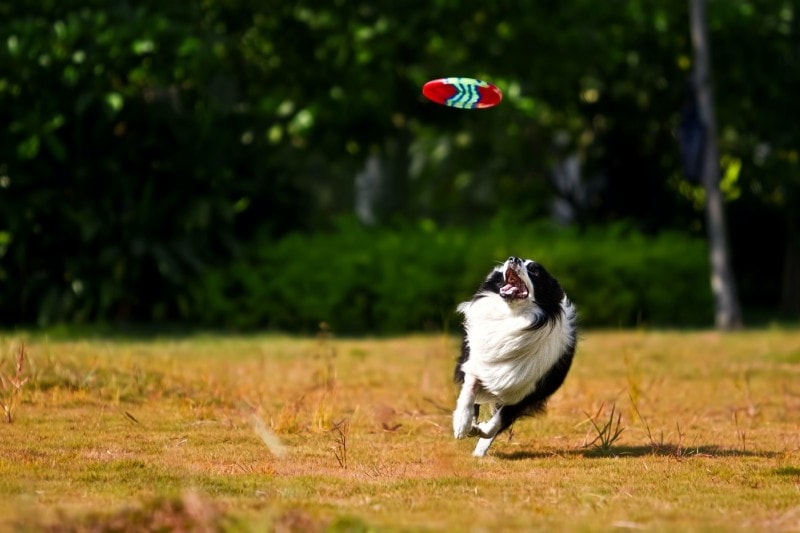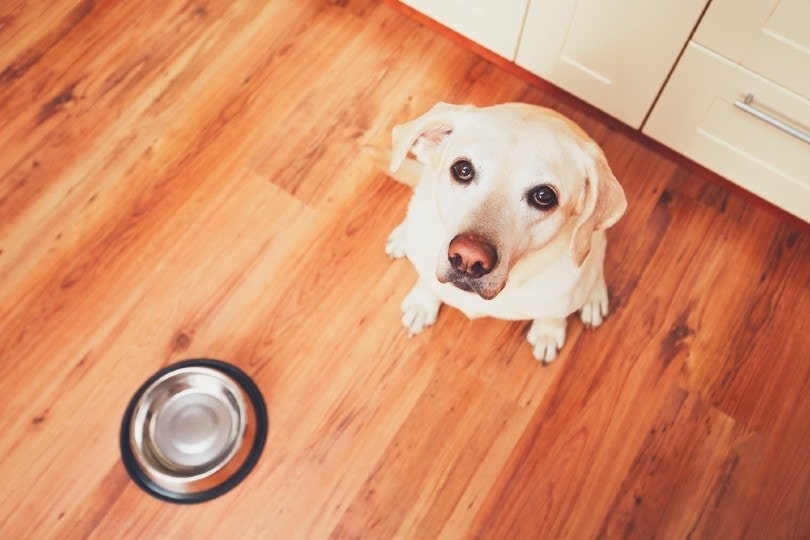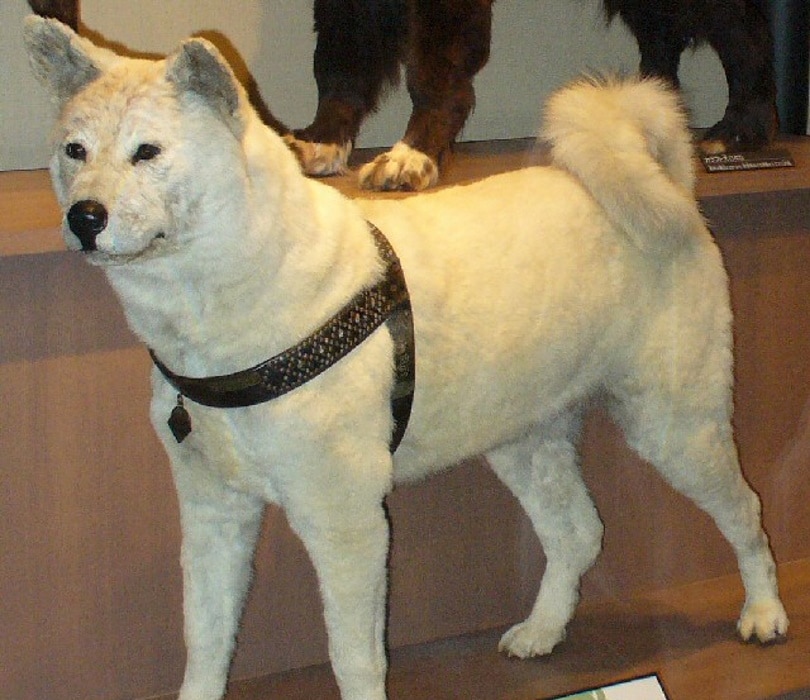Why Do Dogs Howl When You Howl? 6 Vet-Reviewed Reasons
Updated on
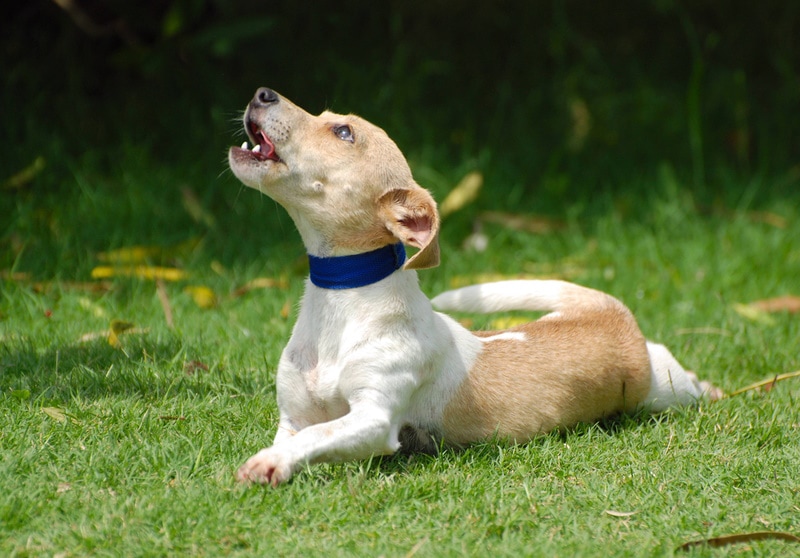
Many of us wish we could communicate with our dogs the way we do with other humans. Can you imagine being able to use words to tell your pet how much you adore them and know that they truly understand the depth of our love and devotion? While we can’t communicate with our dogs in this way, there is at least one way you can speak to your dog in a way that they’ll understand, and that’s through howling.
Dogs howl for many reasons, but if yours is responding to your howls with their own, you might wonder what’s going on. What are they trying to tell you? What are you telling them? Read on to find six possible reasons for your pup to reciprocate your howls.
The 6 Main Reasons Dogs Howl When You Howl
1. They’re Bonding With You
Dogs look for any excuse to bond with their owners. When you howl and your pup howls back, they may simply be trying a new method of bonding with you. Howling together as a group demonstrates togetherness, so if your pup joins in when you howl, chances are they enjoy connecting with you at this level.
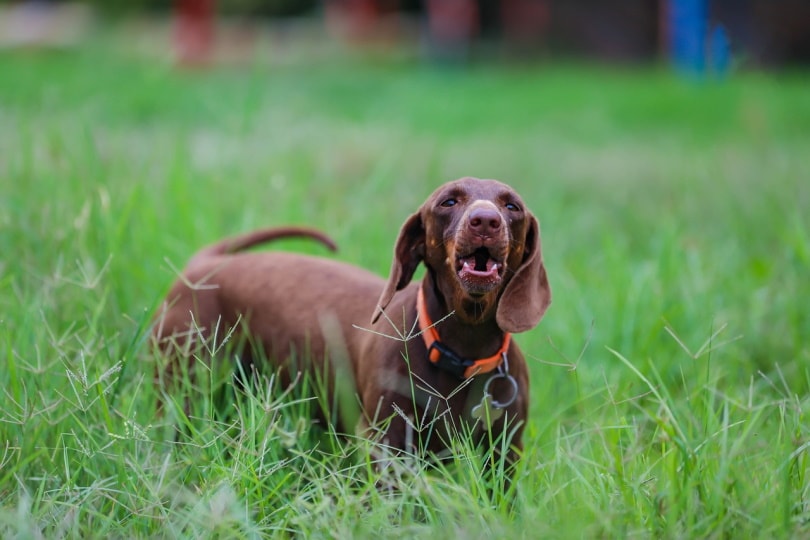
2. They’re Communicating With You
Remember, domesticated dogs are descended from wolves, who are predictable in their routines. Some of the pack will stay at their home base while others scout for food. Howling was their way of communicating while the pack was separated from each other. The wolves that stay behind will vocalize to their scouting pack members to signal the location of their home base, essentially guiding them back home to safety.
While you’re not out scouting for food or protecting the home base, your dog howls back at you because he’s trying to communicate with you the same way his wolf ancestors spoke with their pack.
3. They’re Copying You
Dogs can observe and imitate human behaviors and emotions, so when they howl at you after you have done it first, it could just be them mirroring your behavior. They may not be able to copy our speech, but they can copy our howl.
4. They Want to Make You Happy
Think of the last time you howled, and your dog responded with their own howls. What was your response? Chances are you found it incredibly cute and endearing because it totally is. You probably smiled, laughed, and offered words of encouragement and praise. Because dogs live for our attention and praise, your pup may have made a mental note that responding to your howls with their own made you super happy. Now that they’ve made the connection that howling along with you makes you ecstatic and earns them praise, they’ll probably always do it.
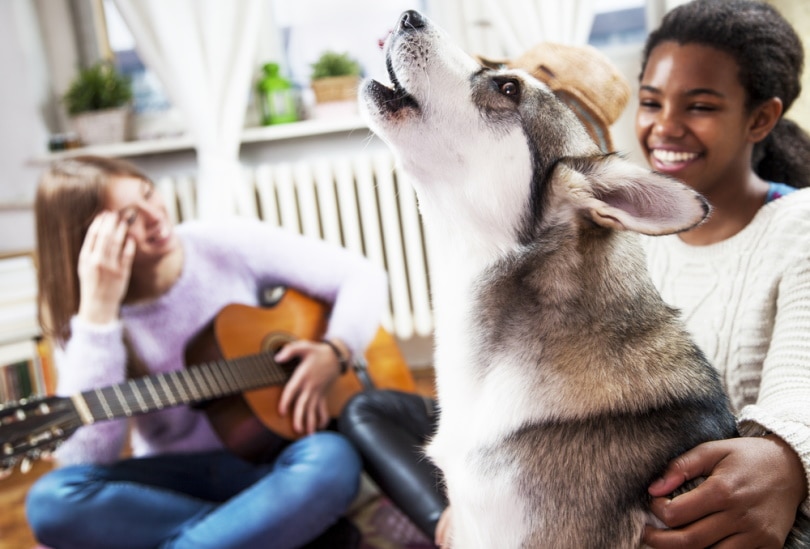
5. They’re Anxious
While you might think your pup’s mimicking howls are good-natured fun, they may be the opposite. There is a chance that your howls make your shy and sensitive pooch anxious, which is why they respond to them with their own howls. Your pup might even think your vocalizations are a sign of distress or that you’re in pain.
It’s important to pay close attention to your pet’s behavior and body language to determine if it is anxiety howling.
- Panting
- Pacing
- Trembling
- Yawning
- Drooling
- Withdrawal
- Hiding
- Irritability
- Aggression
6. They’re Simply Responding
Dogs will sometimes get vocal in response to an unusual or high-pitched sound, especially if it’s a noise they’re not used to hearing. This is why your pup might start howling when they hear police sirens pass by your home or when they hear a car backfiring. When you howl unexpectedly, your dog may simply be responding to the sound the same way they would any sudden noise.
Final Thoughts
Howling is a natural form of canine communication, so when your pup howls alongside you, chances are they’re trying to tell you something or are responding to your vocalizations. Read what other body language your dog is exhibiting to determine whether they’re enjoying your howls or not. The last thing you want to do as a loving pet owner is participate in an activity that makes your pup stressed out or anxious.
Featured Image Credit: Anke van Wyk, Shutterstock



